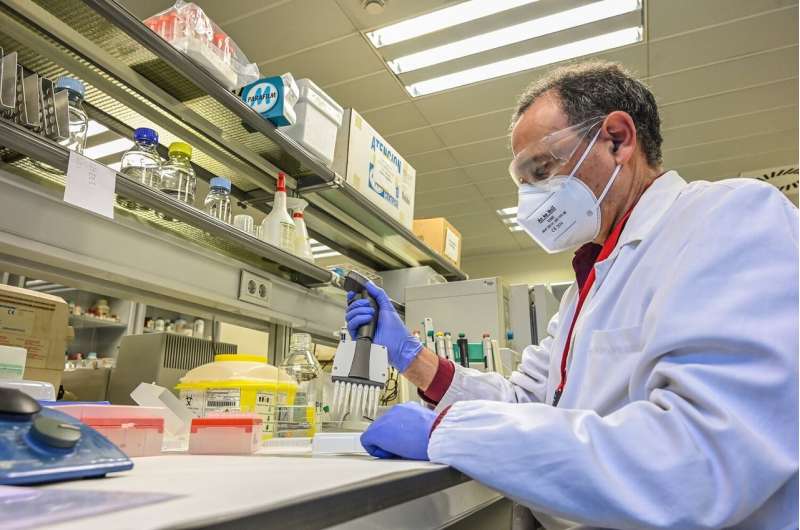Researchers create test to analyse SARS-CoV-2 seroprevalence

Research staff from the Polytechnic University of Valencia (UPV), belonging to the Centre for Research and Innovation in Bioengineering (Ci2B), in collaboration with the FISABIO—Doctor Peset University Hospital Foundation, have developed a new ELISA-type immunologic test to study the seroprevalence against SARS-CoV-2. The test, in prototype phase, makes it possible to detect IgG and IgM antibodies against the virus from human serum. It stands out due to its low cost compared to other existing tests on the market, as well as for its high sensitivity and reliability—classic characteristics of ELISA tests.
The validation of the DIFELISARS test will be conducted by staff from the UPV and the Doctor Peset University Hospital: specifically, a total 200 samples will be analyzed. The team of Valencian researchers will also study the differences in the immune response generated—antibody levels—among men and women from the analyzed serum samples.
In the study, the UPV-Doctor Peset University Hospital has already started gathering, preparing and characterizing approximately 50 serum samples from patients, which will be used as positive and negative COVID-19 tests. The samples taken will be increased until reaching the 200 needed to conduct the seroprevalence studies.
The test provides a colorimetric signal, proportionate to the concentration of said antibodies, and makes it possible to characterize the sample by comparing positive and negative tests. "The availability of a test of these attributes has now acquired critical importance, as it would allow easy, reliable and cheap monitoring of the individual response of each person during the current vaccination campaign," says Ángel Montoya, director of the Immunotechnology line of the Ci2B at the Polytechnic University of Valencia.
The project is framed within health research program Polisabio 2020, promoted by the UPV and the FISABIO foundation. Regarding the UPV, along with principal investigator Ángel Montoya is Juan José Manclús, and they have the collaboration of the Integrated Occupational Prevention and Health Service of the UPV. And for the FISABIO, the principal investigator is Guillermo Sáez Tormo, clinical head of the Clinical Analyses Service, with the collaboration of Nuria Estañ, head of said service, and Juan Alberola, from the Microbiology Service of this public Valencian hospital.
Ideal for mass sampling
ELISA-type tests have been applied for decades in various fields of biomedical diagnosis, and they stand out due to their high sensitivity and reliability. Furthermore, they make it possible to analyze a high number of samples simultaneously—up to 120 samples in 180 minutes –, which validates its suitability for broad population samplings such as seroprevalence studies.
"Although some ELISAs are currently on sale to detect antibodies against SARS-CoV-2 in human blood products, their price remains high and their real availability is scarce, because large amounts of institutions and governments around the world are trying to acquire them simultaneously in order to conduct their COVID-19 monitoring programs. We have worked on this project to tackle this, to get this low-cost test based on existing commercial immunoreactive products ready, which would help facilitate viral seroprevalence studies, while differentiating between sexes, in our immediate surroundings," concludes Ángel Montoya.




















